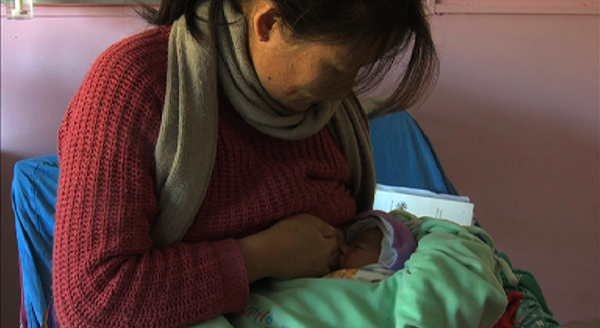 Six babies were born at the national referral hospital in Thimphu this morning on the New Year’s Day. UNICEF and health ministry say an estimated 35 babies would have been born in the country today.
Six babies were born at the national referral hospital in Thimphu this morning on the New Year’s Day. UNICEF and health ministry say an estimated 35 babies would have been born in the country today.
Parmila Chhetri gave birth to the first baby of the day at the national referral hospital.
As the world ushered in the New Year with great festivities, Parmila Chhetri and her family found themselves welcoming not just the New Year but also the newest member of their family.
“My baby girl was born at 8 minutes past 1 this morning. She is the first baby born on the New Year’s Day at the national referral hospital,” Parmila Chhetri said.
Her new-born weighs 3.3 kilograms.
The UNICEF and the health ministry say not all babies born today would be healthy though. One of the six babies born yesterday morning at the JDWRNH was stillborn. It is likely that five of the 35 babies born across the country would be either pre-term or low-birth weight.
This means their likelihood of survival is only 40 per cent if not given special care and timely treatment.
As the year 2019 starts, the Ministry of Health and UNICEF highlight the need to meet every newborn’s right to health and survival.
In 2017, it is estimated that about 250 babies died in the first month. Half of the deaths were due to complications related to prematurity.
The UNICEF says over the past three decades, Bhutan has seen remarkable progress in child survival, reducing the number of children who die before their fifth birthday by more than half. This is evident from the reduction in the infant deaths from 102 to 30 per 1,000 live births and under-five mortality rate from 162 to 37.3 per 1,000 live births since 1984.
However, there has been slower progress to reduce newborn deaths, the health ministry says.
The deaths of children within the first four weeks of life are still high at 21 per 1,000 live births. It contributes to about 67 per cent of infant and 56 per cent of under-five mortality.
The UNICEF’s Every Child Alive campaign calls for immediate investment to deliver affordable, quality health care solutions for every mother and newborn.
These include a steady supply of clean water and electricity at health facilities, the presence of a skilled health attendant during birth, ample supplies and medicines to prevent and treat complications during pregnancy, delivery and birth, and empowered adolescent girls and women who can demand better quality of health services.
Today, on 1 January 2019, the revised Mother and Child Health Handbook including the first-ever Child Development Screening Tool (CDST) were also launched. This will allow health workers to detect disabilities in children on time.
In addition, the pneumococcal vaccine (PCV) for children under five years will also be introduced in 2019.
These interventions are expected to ensure quality new born health in Bhutan.








